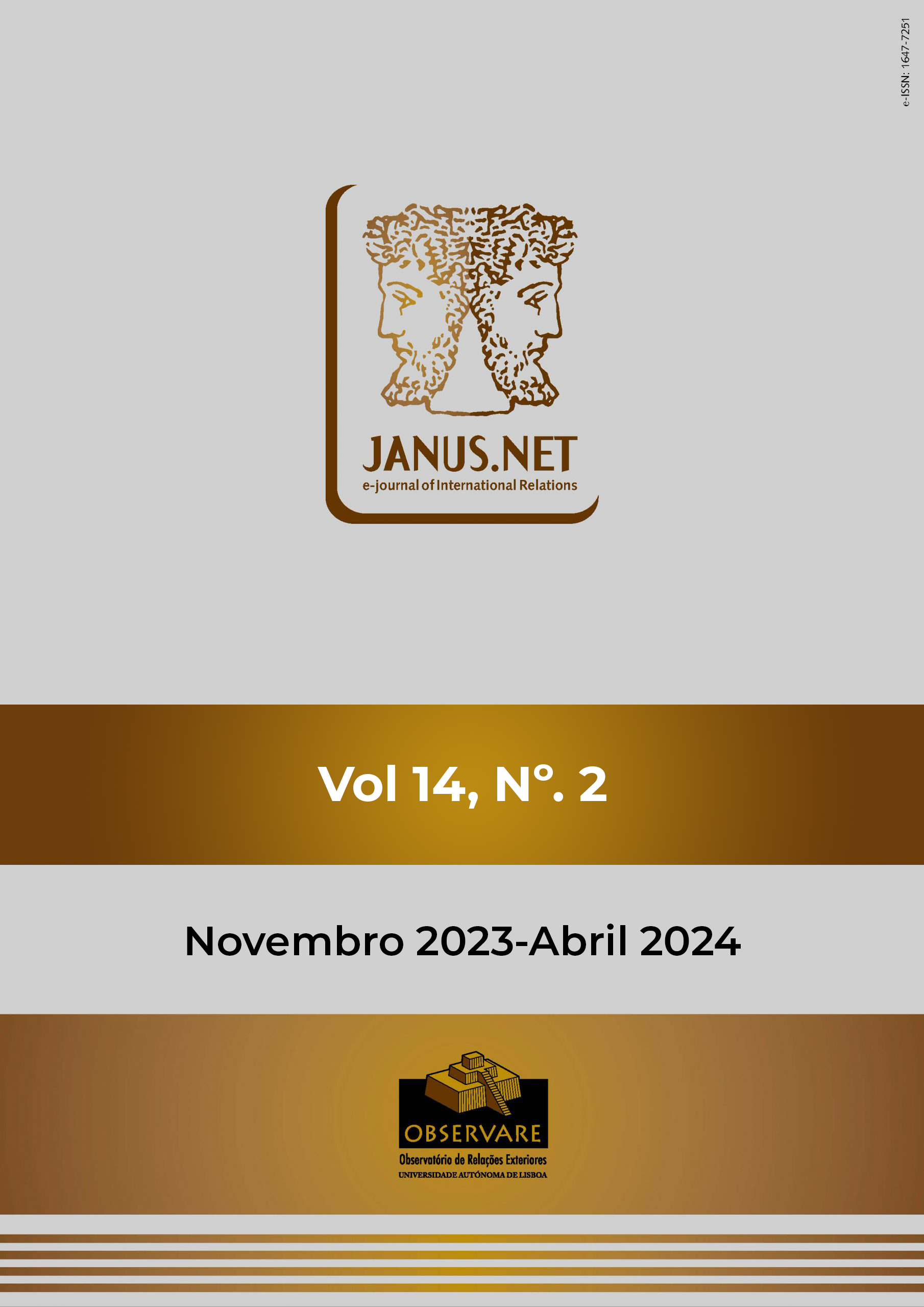UKRAINE EFFECT: ARE WE GROPING FOR A NEW WORLD ORDER?
DOI:
https://doi.org/10.26619/1647-7251.14.2.3Keywords:
Ukraine War, New World Order, Liberal Order, Post-Cold War Era, U.S., China, India, RussiaAbstract
Russia’s invasion of Ukraine has upended the contemporary world order - and with it the global energy, manufacture, supply, and financial systems in deep distress. In many ways the war recaps the appalling horrors of the two world wars. The conflict between Moscow and Kiev is unfolding against the backdrop of other correspondingly significant crises and cataclysms,
for instance the continuing coronavirus pandemic, worsened tensions namely in the U.S. - China relations, U.S. withdrawal from Afghanistan, uncertainty in the Sahel Region, the unending civil war in Yemen, increased nuclear polarization in North Korea, and lead to a new pattern of European rearmament. The cost of war is having geopolitical and economic
ramifications on the rest of the world. The Russian aggression in Ukraine is manifestation of the struggle for a new world order. Russia and China are openly challenging the Pax Americana, far beyond the visible economic realm. The recent Global Security Initiative (GSI) put forward by the Chinese President, in the April 2022 at BOAO forum, the narratives associated to Shangri-La 2022 defense talks, the Global Development Initiative proposed at the UN General Assembly 2021 and the Global Think Tank Network for Democracy Studies, underlined this evidence. As asserted by Kuo, the GSI is “Blueprint for integrating China’s
security priorities and practices (…) Using the U.N. aegis, Beijing is promoting China as a primus inter pares dispute arbiter, architect of new regional security frameworks, and trainer of security professionals and police forces in developing countries” (Kuo, 2023). But the question how the next world order will look like remains open. The Russian war in Ukraine has fast-tracked a shift in the world order forcing a renewed balance of power. There’s an extensive assessment that the “Ukraine effect” could be as sweeping in restructuring global relations as significant as the chain of events following the breakdown of the Soviet Union in 1989 expect that this time the power shift might be away from Washington hegemony. Since President Vladimir Putin attack on Ukraine on 24 February 2022, there is proliferation of research and academic papers about the future shape of world order. Therefore, these developments beg questions: Is the idea of an “end” to history is fallacy? Are there no key difficulties within liberal policies that can fuel struggle and contradictions? Is Ukraine a wakeup call for Western Liberal order? Do liberal democracies need to pay cognizance to rapidly emerging new international order which is less weighed down by old ideological loyalties but is more realist and transactional and driven by national interests? How can we comprehend China-Russia open diplomatic alignment? This paper provides an analytical discussion on NewCold War developments and the emerging world order in the backdrop of ongoing struggles and power rebalancing. In this regard, the manuscript addresses some of the main features of the new international power configurations system, apparent drifts, and new threats in international relations.


